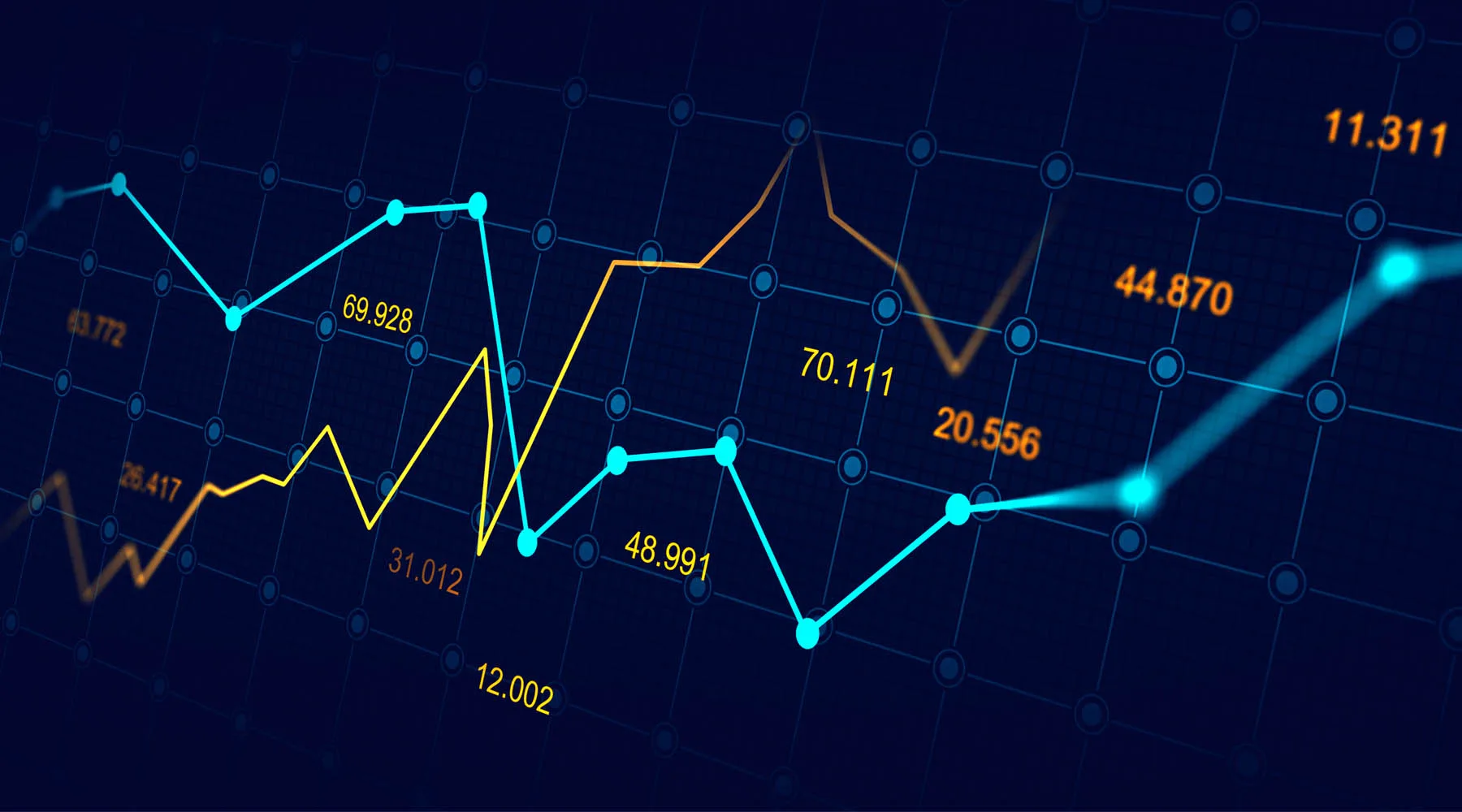How to understand the market moves affecting your forex pair

During a volatile market, here are the major economic factors you need to know before forex trading.
 Sponsored by Eightcap (AFSL 391441). Established in Australia, Eightcap gives traders access to 40+ Forex pairs with low spreads — plus CFDs on shares, commodities, crypto and more with a trusted MetaTrader 4/5 broker. Create a free demo account to test your strategies and the platform.
Sponsored by Eightcap (AFSL 391441). Established in Australia, Eightcap gives traders access to 40+ Forex pairs with low spreads — plus CFDs on shares, commodities, crypto and more with a trusted MetaTrader 4/5 broker. Create a free demo account to test your strategies and the platform.

Sponsored by Eightcap (AFSL 391441). Established in Australia, Eightcap gives traders access to 40+ Forex pairs with low spreads — plus CFDs on shares, commodities, crypto and more with a trusted MetaTrader 4/5 broker. Create a free demo account to test your strategies and the platform.
If you tuned into any financial news lately, you've probably come across discussions about the current exchange rate between the Australian dollar and other currencies. While it's great to have a stronger AUD if you're flying to New York or London, the currency exchange rate can have much larger implications for forex traders.
Foreign exchange (or forex) is the difference in price between 2 currencies and has wide ranging economic impacts, most notably on imports and exports. After all, a strong Australian dollar means it's cheap to import goods but puts pressure on our exports.
And while this market might be complex, driven by numerous economic factors, retail investors can actually trade in it should they be inclined to do so.
To help talk through how foreign exchange markets work, Finder spoke with Eightcap's financial market analyst Joseph Jeffriess, who writes regular forex news and analysis for the Australian-founded broker. He explained why new traders should understand basic economic data prior to trading.
"Most beginners will start on the majors, which is basically anything quoted against the US dollar. The main drivers are the US economy, the Fed policy and currently the US inflation," he said.
What is forex trading?
Forex is basically an umbrella term used to describe the buying and selling of international currencies and other currency related financial instruments.
In terms of trading, you're most commonly trading currency pairs, which is the coupling of 2 different currencies on a foreign exchange marketplace. Going back to our news telecast, if you hear the Australian dollar is buying 74 US cents, this is a currency pair between Australia and the US.
Forex pairs will go up and down based on a number of economic factors, but fundamentally it is based on supply and demand. Investors choose to put their money into an economy that they see as having potential growth. To find this out, forex traders need to have a deep understanding of macro and micro economic factors.
How can traders make money by forex trading?
Forex traders attempt to make a profit by predicting the future value of one currency compared with another one, but remember even experienced traders find it difficult predicting price movements.
With forex trading, it's done on the margins. Say you think the Australian dollar is going up against the US dollar and you bought in at 75 US cents. If it rises from 7,500 to 7,600, you make a profit of 100 pips (percentage in points) on the trade.
However, should the same dollar fall to 7,400, you would lose 100 pips on the trade.

Current economic factors to watch out for
While there are numerous geopolitical and economic factors investors need to watch out for, Jeffriess highlights why investors should be keeping an eye out for inflation in April as it remains the key driver for currency markets.
Inflation
Starting with the biggest impact on forex markets is inflation, particularly in the United States which have reached levels not seen since the 1980s.
While a little bit of inflation is a good thing for an economy, in February inflation reached a 40-year high of 7.9%.
A month later and the problem is only getting worse.
The latest figures released in April show that in March, inflation passed 8.5%, well above the US Federal Reserve's (the Fed) target range of 2% over the long term.
To help with inflation, the Fed lifted rates for the first time since 2018 in March and is set to lift rates again when it meets next.
Jeffriess explains the impact this will have on the forex market.
"Inflation is the key one for the rest of the month. The Fed last week came out saying after inflation hit 40-year highs, they were prepared to take a very aggressive policy stance to get it under control," he explains.
"That effectively means they are going to raise rates faster and more than what the Fed originally told us. That will be the key one for the US dollar. This will have a knock-on effect on other currencies."
While the US is currently grabbing most of the headlines, Jeffriess warns that the country is not alone in terms of inflation, pointing out the conflict in Ukraine is only adding to inflationary pressures worldwide.

Conflict in Ukraine
The second major impact on the forex markets is the conflict in Europe, although markets are beginning to factor in this impact on currency markets.
Jeffriess highlights this by explaining how traders usually flock to the US dollar in times of uncertainty.
"The US dollar did see some demand, it is always seen as a safe haven so people were moving into it, but gold and oil were the key safe havens," Jeffriess said.
However, the conflict in Ukraine's main issue was the second order impacts it had on Europe, which saw the price of the Euro collapse.
"It was a bit of a perfect storm for the Euro because the EU was looking at it as, 'Okay, Ukraine is at war with Russia, and if anything goes seriously bad with Russia and they cut off our gas, all the manufacturing in the biggest economy in Europe, Germany, will shut off.' There were also worries about heating because Russia is a key supplier in heating Europe," he said.
Combined with threats from Russia to the rest of Europe, investors parted ways with the Euro.
"That really freaked out a lot of the EU members and that is what led to the Euro falling. Combine that with a slightly higher USD and you have a very weak Euro," he said.
That is why you noticed the Aussie dollar wasn't as badly affected, even though it quoted to the USD, so that was primarily a political tension driver.

Buy on the rumour, sell on the news
In the current market environment, Jeffriess highlights many traders are following a "buy the rumour, sell the news" strategy.
Basically, this strategy allows a trader to speculate on capital movements by opening a position on a rumour that is considered profitable. This is usually around economic reports or breaking news.
This speculation can cause asset prices to rise. If so, the trader can then sell at a higher price when the actual news is delivered.
Jeffriess highlights this strategy comes with some risks.
"The key driver can be the data, but it is often what the market expects. So if the market is expecting 20% and it gets 20%, it won't move at all, but if the market expects 20% and the numbers are 10%, it will move significantly," he explains.
What do I need to get started?
If you're interested in getting started with forex trading, Jeffriess explains there are 2 ways investors can trade in the forex markets being technical or fundamental analysis.
He goes further to explain that regardless of what method investors choose, it is imperative that they have a sound understanding of the economic conditions and how they'll play out.
"You can trade solely from technical analysis, but you have to have a general idea of what is driving the price moving on a chart. If you don't, you can qualify it with your trading charts, but if you don't understand what is going on on a global scale, you'll be questioning why prices are moving, so you have to have a rough understanding," he concluded.

Trade with Eightcap
[Sponsored] As a premium Forex and CFD broker, Eightcap has advanced features and tools such as:
• Low spreads and leverage trading
• FX Blue Labs (widgets and charts)
• Capitalise.ai (automated trading; no technical skills required)
• The Amazing Trader (strategy and risk management)
• Upcoming TradingView integration to trade directly off charts
• Create a free demo account to test strategies & the platform
Disclaimer: Trading CFDs and forex on leverage is high risk and losses could exceed your deposits.
Compare other Forex brokers here

